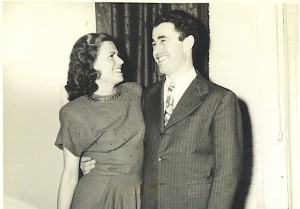Socialists Are Fools But Not All Fools Are Socialists

1. It has become fashionable to present reports on piracy that are wrapped in a tranquilizer. It is suggested that the solution of the problem is in Somalia. Save Somalia (throw money at it?) and all will be hanky-dory. One is tempted to suspect that the popularity of the mantra has to do with the trick of attaching an otherwise threateningly soluble problem to a precondition that cannot be met. The benefit is that, succumbing to the West’s luxurious self-doubts, a good reason is given to persist in doing the unreasonable. Thereafter it becomes easy to desist from solving the solvable.
Jihad, Dishonesty and Double Talk in Britain

On Work and Freedom: For Holocaust Remembrance Day and Durban II

about 2 years after her liberation from Auschwitz.
My amazing grandmother, Esther Klein, is turning 91 next month. She was in her mid-twenties when she was liberated by the Swedish Red Cross from an aimless, endless transport, after having spent several nearly lethal winter weeks in Ravensbrueck. Before that, she’d “worked” for several months in Auschwitz, after having lived for a very short time, along with her elderly parents, in a temporary tent city near her hometown of Seredna, constructed right along the railroad tracks, the better for the Jews to wait for their “ride.”
Before that, Esther Herskovitz was a bright, active young woman with bad hay fever, living near the Czech border in a small town in a big house with an orchard and a vineyard and a large, warm family, all of which have since vanished, literally, into thin air. Except the allergies… and my grandmother.





















